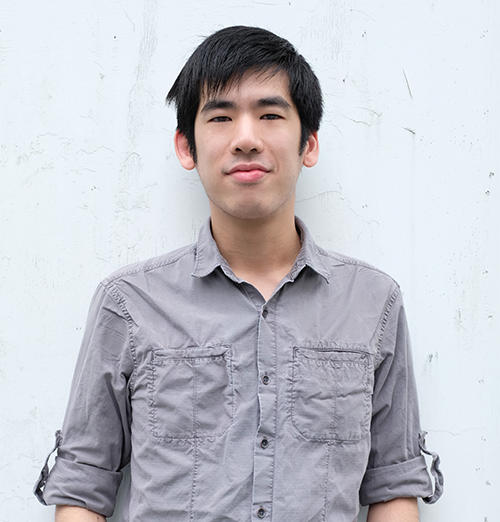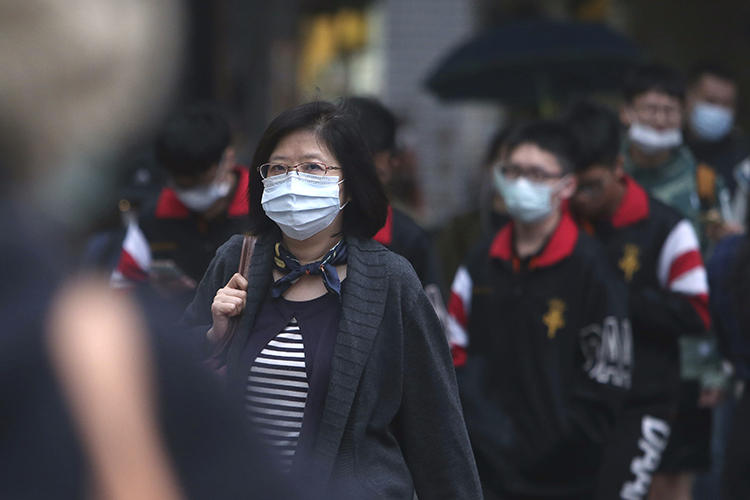Brian Hioe is an editor for the New Bloom Magazine, a news website that covers social issues, politics, and culture in the Asia Pacific region. He also works as a freelance journalist in Taiwan, where the government has been praised for its responses to the COVID-19 pandemic.
Hioe told CPJ about the measures the Taiwanese government is taking to combat rumors about COVID-19, and how he recently became a target of online harassment after being quoted in a BBC article on authorities’ digital tracking of quarantined individuals.
He also talked about how the low threshold for libel suits on the island could silence efforts to fight misinformation. CPJ spoke to Hioe via messaging app on April 8.
How has the pandemic affected your work on a daily basis?
I work primarily from home, so there hasn’t actually been too much disruption to my daily work, except that more meetings take place through video-conferencing or calls than in-person meetings.
I’m still covering my usual beat of social issues, protests, and electoral politics, but there is a decline in the number of protests to cover because of social distancing, and an enormous amount of stories are all COVID-19 related at present.
What are the greatest obstacles to your work amid the pandemic?
Because much of my work comes from freelancing, I anticipate a decline in the amount of work I receive in the near future. I anticipate being severely affected because I write in English and resources devoted to coverage of Asia by English-language publications tend to be lacking.
Likewise, while my primary focus is as a political journalist, a significant part of my income comes from writing on the arts and culture, which I also expect to see fewer resources devoted to going forward.
Apart from myself, because I manage daily operations for New Bloom Magazine, there was significant disruption to our planned activities for the next six months. Our plans for opening a physical space to hold events have had to be put on hold, as will our plans to hold events internationally in Japan, Okinawa, and Hong Kong.
We’re also limited to organizing small-scale events because of social distancing concerns, with few venues interested in allowing us to host larger events, and we’re keeping track of everyone who attends these events, to allow for easier contact tracing in case of transmission.

What are you doing to keep yourself safe?
Personally, I’m just trying to stay at home and go out less often! And to wear a medical mask when I do [go out]. Otherwise, I haven’t had to take measures beyond those that ordinary people in society are, because of the fact that Taiwan has been relatively unaffected by COVID-19. Social mobility remains high in Taiwan compared to other countries.
How would you rate the openness and access to information from the authorities in Taiwan?
Openness and access to information from the authorities has not been a significant issue for journalists to date. The government has imposed fines on some individuals for spreading rumors about the spread of COVID-19 online, such as claiming that the government is covering up the actual death toll from the coronavirus or claiming that there will be shortages of supplies such as toilet paper or hand sanitizer in order to drive up prices.
However, this has not significantly affected journalists–though it is probable that the government will take action if a media outlet spreads disinformation and the government has taken steps to centralize information about the spread of COVID-19 to daily press conferences by the Central Epidemic Command Center. This is limited to Chinese-language media though, with there being a lack of oversight over English-language media, generally speaking, even regarding COVID-19.
Recently, I did face internet harassment and investigation of my personal information from online netizens, however. This occurred after I was quoted in a BBC article on the potential privacy concerns of the government tracking individuals under quarantine.
Online netizens reacted badly against what they saw as a criticism of government policy and began investigating my personal information and launching attacks on me online, though this was hampered by [their] poor English. I generally think that they were unable to understand what I was actually saying in that quote and, based on what I saw online, I am surprised that they were not able to turn up more information except for that they were limited by their English abilities.
How are you dealing with and responding to misinformation around the virus?
Apart from simply striving to be as accurate as possible in my own reporting, I’ve written a few articles targeting specific misinformation claims in Taiwanese media the past few months, with a focus on Taiwanese English-language domestic media.
This is a product of poor fact-checking practices in Taiwan, combined with [the fact] that some English-language media outlets engage in sensationalist reporting to drive up hits and that English-language domestic media receives little scrutiny from the government or public. In such cases, even in calling out misinformation, I have to beware of libel lawsuits from a larger outlet with much more resources, given how easily libel laws are abused in Taiwan.
I will probably keep this up through the COVID-19 pandemic, though I have to be strategic regarding when to make an intervention because of this threat.
